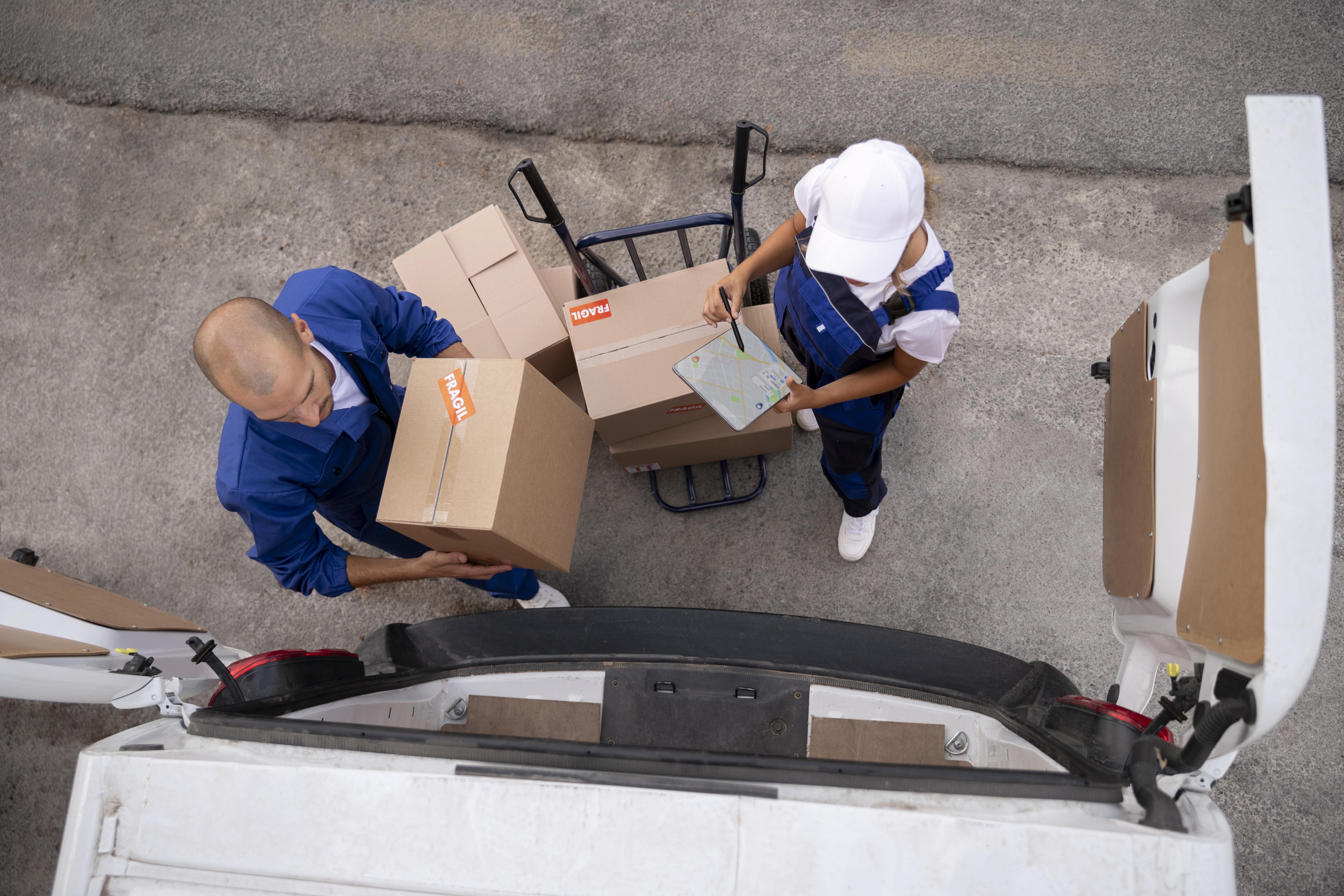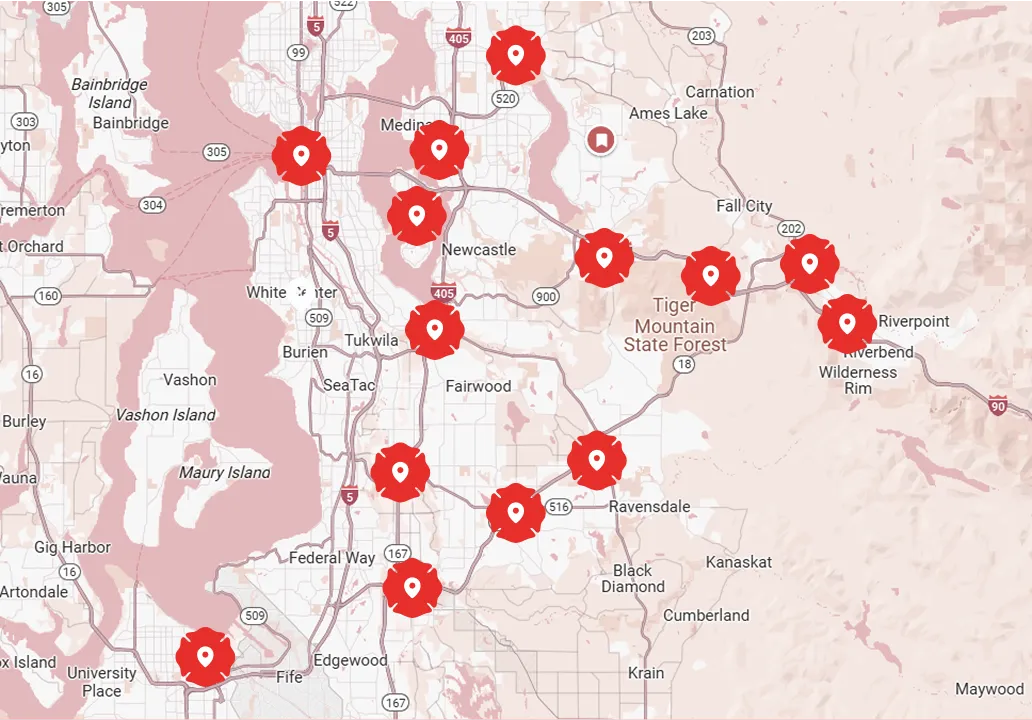Interstate Moving Companies in Bellevue, WA
.webp)
Interstate moving from Bellevue, WA demands licensed carriers, strategic planning, and reliable long-distance protection for every item in transit. Professional movers manage each stage—from USDOT-compliant registration and inventory-based estimates to detailed route coordination and transparent timelines. Services address the most common move types to and from Bellevue, including residential and corporate relocations, with specialized packing, labeling, and tracking to ensure safety across state or international borders, including moves to Canada. The process includes clear scheduling, organized execution, and consistent communication from start to finish. Clients also receive guidance on evaluating quotes, understanding insurance coverage, and selecting a fully compliant, trustworthy interstate moving partner for a smooth, secure relocation experience.

Interstate Moving Companies in Bellevue, WA
Moving out of state from Bellevue, WA is a different challenge than a local move. Whether you are relocating to the Bay Area, Salt Lake City, Denver, or across the Canadian border to Vancouver, an interstate move requires licensed carriers, cross-jurisdiction logistics, and packing standards built for long hauls. This page explains what experienced interstate moving companies in Bellevue, WA handle, how timelines and protections work, and what to expect from transit and delivery so you can make an informed decision.
Why proper interstate planning matters for Bellevue moves
Bellevue homes often include high-value electronics, modern furnishings, and delicate items that demand extra care during multi-day transport. Add Pacific Northwest weather—frequent rain, winter mountain passes over I-90, and seasonal congestion on I-405—and the need for a mover that understands regional challenges becomes clear. An interstate mover with valid USDOT / FMCSA registration and active MC and DOT numbers follows federal rules for long-distance transport, driver hours, insurance, and paperwork required for crossing state or national borders.
Common interstate move types from Bellevue
- Relocations to the Bay Area, Sacramento, and Southern California for tech or corporate transfers
- Moves to Portland, Eugene, or other Oregon cities for lifestyle or job changes
- Trips eastward to Idaho, Utah, Colorado, and the Midwest for family or remote-work moves
- Cross-border moves to British Columbia for jobs or family relocation (requires customs paperwork)
- Long-distance seasonal moves to warmer climates or retirement destinations
What experienced interstate movers provide
- Proof of licensing and insurance: movers should carry and display USDOT / FMCSA registrations and MC/DOT identification on estimates and bill of lading
- Detailed, inventory-based estimates that clarify binding vs non-binding charges
- Route planning that accounts for mountain passes, seasonal road closures, and commercial vehicle restrictions
- Legal compliance for crossing state lines and, when applicable, customs declaration and documentation for Canada moves
- Trained crews, appropriate vehicles (air-ride trailers, climate-controlled options), and secure loading procedures
How an interstate move is planned and executed
- Estimate and inventory: Onsite or virtual surveys document household goods, specialty items, and any access issues (stairs, narrow driveways, elevator usage).
- Written moving plan: A clear scope—packing, partial packing, crating, storage, and expected delivery window—is documented. This includes required permits, overweight planning, and any specialized equipment.
- Preparation and packing: Fragile and high-value items are packed using long-haul standards (see next section). Electronics and sensitive equipment receive additional protection against vibration and humidity.
- Dispatch and monitoring: Trucks are assigned with drivers experienced in long-distance routes. Trips are scheduled around expected weather, hours-of-service rules, and road advisories.
- Transit communication: Move coordinators provide regular status updates, GPS-based tracking where available, and proactive notices about delays.
- Delivery and inspection: Inventory is checked against the bill of lading, delivered items are inspected for damage, and claims processes are explained if needed.
Typical transit timelines from Bellevue
Transit time depends on distance, route, freight schedules, and seasonal conditions. Typical examples:
- Bellevue to Portland, OR: 1 day transit
- Bellevue to San Francisco Bay Area: 2 to 3 days
- Bellevue to Los Angeles: 3 to 4 days
- Bellevue to Salt Lake City / Denver: 3 to 5 days
- Bellevue to Midwest or East Coast: 5 to 10 days
Factors that can extend delivery windows include peak moving season (late spring and summer), winter storm closures through the Cascades, required storage/transfer legs, and customs processing for Canada moves.
Packing and protection standards for long hauls
Interstate moves require higher levels of protection than short local moves. Standards include:
- Premium packing materials: double-walled dish packs, wardrobe boxes, heavy-duty cartons, and sealed mattress bags to protect against moisture.
- Crating for fragile or high-value items: custom wooden crates for artwork, antiques, and electronics susceptible to vibration.
- Furniture protection: moving pads, shrink-wrap, corner protectors, and strapping to secure items in trailers.
- Vehicle and specialty transport: enclosed trailers or lift-gate service for vehicles, pianos, and oversized items with specialized handling equipment.
- Climate control and moisture precautions: Bellevue’s damp climate increases the risk of condensation on long hauls. Climate-controlled trailers or additional moisture barriers are used for sensitive items during summer heat or winter humidity.
- Truck features: air-ride suspension and proper load distribution reduce shock and settling on long-distance roads.
Cross-border and regulatory considerations
Moving to or from Canada adds customs requirements and documentation. Expect:
- Full household inventory and declarations for customs inspections
- Valid passports and any required permits for certain items (plants, alcohol, firearms)
- Additional wait times at border processing points
Interstate moves within the U.S. are subject to FMCSA rules: drivers’ hours of service, weight/size permits for oversize loads, and state-specific regulations for transport. A compliant mover will manage all permits and regulatory filings.
Customer support during transit
Quality interstate movers maintain clear lines of communication throughout the transport stage:
- A dedicated move coordinator acts as the single point of contact for status updates and scheduling
- Scheduled check-ins and GPS-based tracking provide visibility on truck location and estimated arrival windows
- Proactive alerts for weather, road closures, or permit-related delays help you plan delivery dates
- Documentation support: movers provide copies of USDOT / MC / DOT registrations, proof of insurance, the bill of lading, and valuation coverage details on request
- Claims and insurance guidance: interstate moves require understanding valuation options. Movers explain Released Value Protection versus Full Value Protection or third-party insurance to help you choose appropriate coverage
What to expect at delivery and after
- Delivery window: Expect a delivery window rather than an exact time; movers will confirm a narrower arrival window as the truck nears your destination.
- Inspection: You should inspect items at delivery and note any concerns on the delivery receipt. Itemized inventory comparisons simplify claims if needed.
- Unpacking and placement: Full-service interstate moves often include unpacking and furniture placement. Ensure access and parking at your new address to expedite unloading.
- Post-move care: Allow electronics to acclimate before power-up, check wooden furniture for any moisture signs, and verify replacement parts for assembled items.
Final considerations before choosing an interstate mover in Bellevue, WA
When evaluating interstate moving companies in Bellevue, WA, confirm they are federally registered, can provide MC/DOT numbers and insurance documentation, and have demonstrable experience with long-haul protections and cross-border logistics if applicable. Look for clear, inventory-based estimates, explicit information on valuation and claims, and a move coordinator who can navigate Washington weather, mountain routes, and port or border requirements. The right provider minimizes surprises, protects your belongings across state lines, and keeps you informed until everything is safely delivered and set in your new home.

